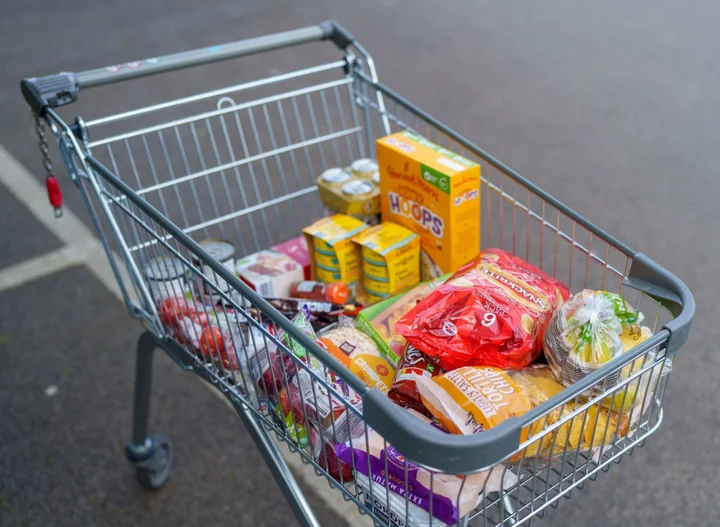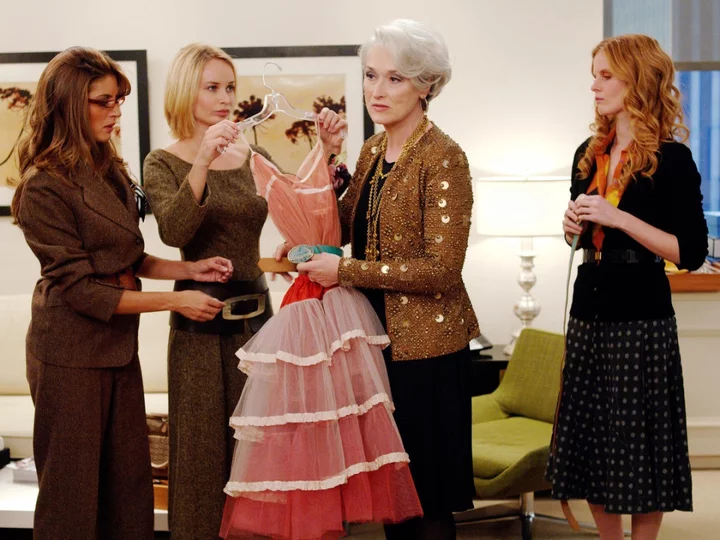Production costs for UK food and drink manufacturers fell for the first time last month since 2016, an early sign that inflationary pressures in the sector may be starting to ease.
The industry’s score on Lloyds Bank Plc’s sector tracker survey fell to 49.4 in May, the first time in more than seven years that it’s been below the crucial no-change level of 50. The decline was driven by falling commodity prices and energy costs.
The data will provide some small relief to cash-strapped households, who have been struggling with historically high price rises in food and drink. Consumer prices in for food and drinks jumped by 19.1% in the year to April, according to the Office for National Statistics, down from March’s 19.2%, which was the steepest rise since 1977.
Lloyds noted, however, that the prices consumers pay typically take some weeks or months to follow a drop costs for manufacturers, which will try to recoup some of the margin they lost last year when prices shot up.
“It will still take some time before we see the benefit in terms of shelf prices,” said Annabel Finlay, managing director of food, drink and leisure at Lloyds Bank Commercial Banking. “This is, in part, due to the long-term nature of contracts between the manufacturers and retailers, as well as the broader segments of the production chain.”
Finlay added that any further disruption to supply chains, such as that caused by the Covid pandemic and the invasion of Ukraine, could cause input costs to rise again. She advised manufacturers to review their supply chains and “optimize” working capital to build resilience.
Parliament’s Environment, Food and Rural Affairs Committee last month opened an inquiry into the fairness of pricing in the food supply chain — a phenomena dubbed “greedflation” in the press. The UK Competition and Markets Authority is also examining whether weak competition in the supermarket sector is contributing to higher prices.
Read more: UK Retailers Question ‘Clumsy’ Effort to Cap Food Prices
But Bank of England policy maker Swati Dhingra said last week that there was little evidence of firms keeping prices artificially high in order to hold up their profit margins.
Lloyds’ data showed pay was the stickiest component driving up input costs for food producers — a worry for the Bank of England, which thinks higher wage-setting is fueling inflation still more than four times its 2% target.
“Cost pressures associated with wage bills remain strong as firms continued to compete for staff,” said Nikesh Sawjani, senior UK economist at Lloyds Bank Corporate & Institutional Banking.
“Retention issues rose to a record high in May, indicating that competition for staff is still intense in some industries, and suggesting that overall pay pressures may remain elevated for some time.”
Across the whole of the sector tracker, four of the 14 UK sectors monitored saw input costs decrease.
Read more:
- Bailey Laments Slow Falling Inflation in ‘Very Tight’ Job Market
- Inflation in UK Shops Hits Record With Little Sign of Relief
- BOE Governor Says Inflation Is Taking Longer to Come Down in UK









